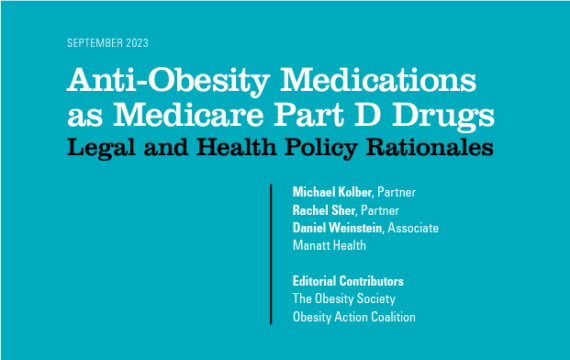
The Obesity Action Coalition, The Obesity Society and Manatt Health worked together on a new white paper, or report presenting a problem and providing a solution, called Anti-Obesity Medications as Medicare Part D Drugs: Legal and Health Policy Rationales.
Obesity is a long-term disease with severe health effects affecting millions of Americans and leading to high healthcare costs. Scientific understanding of obesity has grown, and it is becoming more and more known as a disease with metabolic consequences and links to cardiovascular disease, diabetes and cancer.
Despite the development of FDA-approved treatments, Medicare Part D has generally not covered them due to a decades-old statute excluding “agents used for anorexia, weight-loss, or weight gain.” A new class of treatment known as anti-obesity medications (AOMs), specifically GLP-1 agonists (glucagon-like peptide-1a), has shown to be highly effective in treating obesity and related health problems.
The whitepaper argues that the Centers for Medicare and Medicare Services (CMS) should alter its interpretation of the statute, as obesity treatment is not solely used for weight-loss, but for addressing the complex disease itself. Recognizing obesity as a chronic disease and AOMs as treatments targeting obesity rather than weight-loss, would align CMS policy with modern clinical understanding and support the Biden Administration’s healthcare priorities.
A change in interpretation is important for improving access to effective obesity treatments within Medicare Part D. All people deserve access to safe and effective treatment options for obesity.
Read the white paper here.
